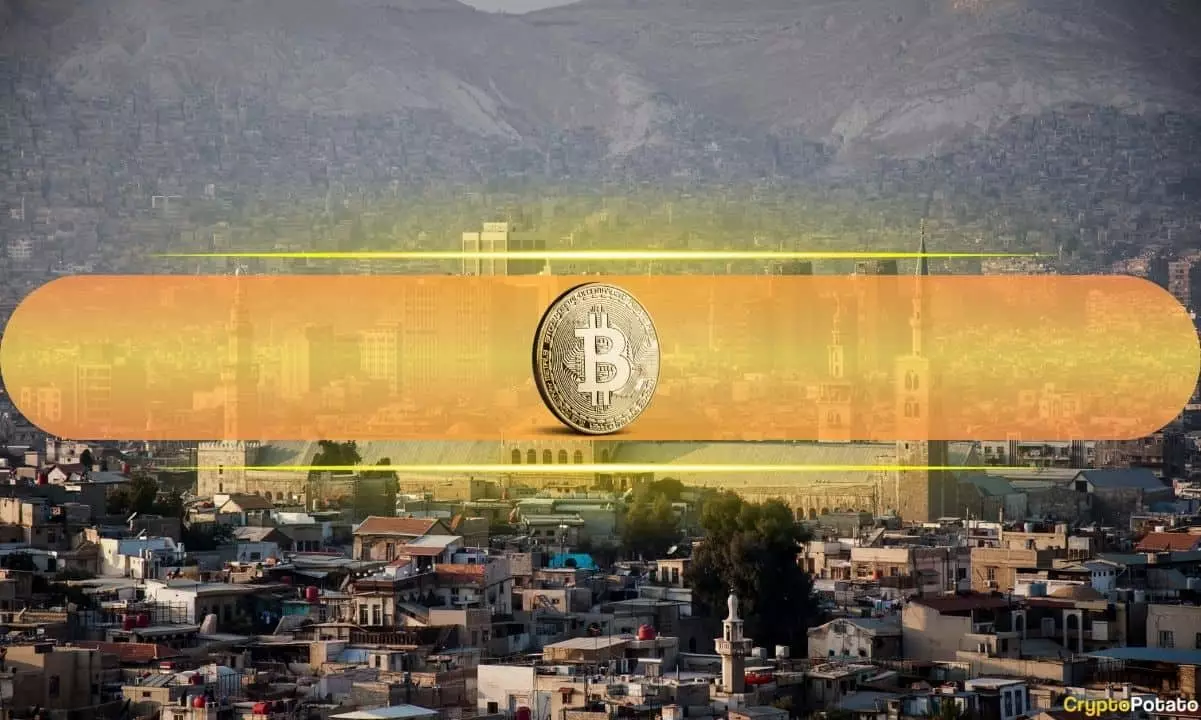In a country ravaged by conflict and economic instability, the Syrian Center for Economic Research (SCER) has introduced a revolutionary proposal aimed at transforming Syria’s financial landscape. This initiative seeks the legalization of Bitcoin alongside the digitization of the Syrian pound, laying the groundwork for a more resilient and adaptable economy. The significance of this proposal becomes increasingly apparent in light of Syria’s ongoing struggle with hyperinflation and substantial currency devaluation, which have crippled the livelihoods of many citizens.
The SCER’s initiative represents a strategic response that harnesses the potential of digital currencies to not only stabilize the economy but also to foster growth by attracting foreign investments. The interplay between digitizing the traditional currency and embracing decentralized alternatives like Bitcoin could create a more robust financial system that could insulate the economy against various shocks.
Shifting Monetary Policy: A New Dawn for the Syrian Pound
At the heart of the SCER’s proposal is the digitization of the Syrian pound, which would involve leveraging blockchain technology to ensure that new digital versions of the currency are securely minted. This crucial step is expected to enhance transaction security and could lead to increased transparency in financial dealings. By backing the digital currency with liquid assets such as gold, the proposal aims to instill greater confidence among citizens and investors alike.
Implementing a regulatory framework to oversee the mining, trading, and exchange of Bitcoin and similar digital assets is a cornerstone of this proposal. Such regulations would not only provide a legal basis for cryptocurrency activities but also align with both domestic and international standards, making Syria an attractive destination for foreign investment. Essentially, the proposal envisions creating an integrated financial landscape where both centralized and decentralized banking can coexist and thrive.
Beyond mere financial reform, the SCER’s initiative is aimed at fostering innovation and entrepreneurship within Syria. By creating a free-market environment that minimizes monopolistic practices, the proposal seeks to empower Syrian citizens, especially entrepreneurs, to fully utilize their potential within the digital economy. Central to this vision is the protection of private property rights, allowing individuals to have self-custody of their digital assets.
The proposal emphasizes the role of start-ups in providing Bitcoin and blockchain-related services, expecting that an influx of new businesses will invigorate the economy. This could catalyze a wave of job creation and skill development, which are critical for restoring hope and prosperity in war-torn regions.
Addressing Challenges and Constraints
Despite the optimistic outlook, the SCER acknowledges the hurdles that lie ahead. Critical issues like the lack of technological infrastructure, limited public awareness regarding cryptocurrencies, and the geopolitical landscape present significant challenges to the initiative. Furthermore, the SCER’s transparency about the transitional government’s stance — or lack thereof — on the proposal reflects the urgency of the situation. The transitional government, currently grappling with other pressing issues, has yet to formally consider this forward-thinking strategy.
This hesitance can be partially attributed to the ramifications of international sanctions, which have greatly impeded Syria’s recovery. Newly appointed Foreign Minister Asaad Hassan al-Shibani has advocated for lifting these sanctions, arguing that they have become counterproductive and jeopardize the welfare of ordinary citizens. His appeal emphasizes the need for international stakeholders to reassess the impact of these measures in the context of a regime change and the subsequent political climate.
The SCER’s proposal stands at a crossroads between urgent necessity and the complex realities facing a nation in recovery. Although no immediate actions seem forthcoming from the transitional government, the groundwork for a reimagined economic landscape is undeniably being laid. By embracing digital currencies, Syria could reconstruct its economic framework to be more agile, accountable, and adaptive to both local and international demands.
The integration of Bitcoin and the digitization of the Syrian pound could serve as catalysts for Syria’s economic revival. However, realizing this potential will require not only strategic planning and regulatory oversight but also continuous dialogue and cooperation among all stakeholders — both local and global. Through collective action and innovative thinking, Syria has the opportunity to emerge from its tumultuous past into a future defined by growth, resilience, and stability.
















Leave a Reply